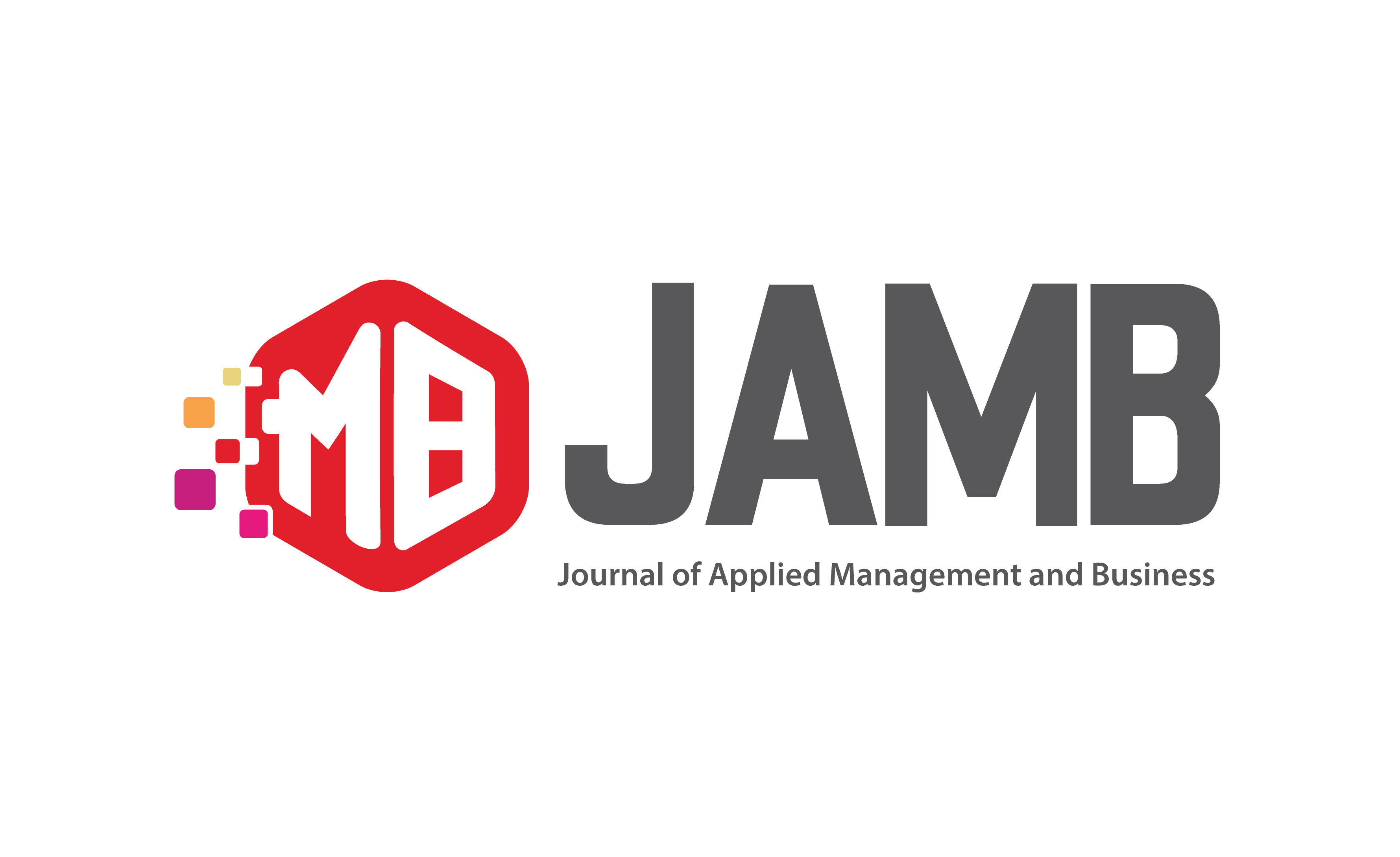The Effect of Self Ability, Compensation, and Self Efficacy on Employee Performance At Rizqy Jaya Mulia Sidoarjo Company
DOI:
https://doi.org/10.37802/jamb.v2i1.156Keywords:
Self Ability, Compensation, Self Efficacy, Employee PerformanceAbstract
This purpose of this study is to analyzed the impact of Self Ability, Compensation, and Self Efficacy on Employee Performance. This study uses quantitative methods. The population and sample are 85 respondents from all employees of Rizqy Jaya Mulia company Sidoarjo. Sources of data in this research using primary data obtained directly from respondents employees by google form. Data analysis technique used in this research were Multiple Linear Regression Analysis to know the effect of Self ability, compensation and self-Efficacy on employees performance, and for proved the hypothesis used F-test and t-test. The results of analysis show that Self Ability, compensation and self-efficacy has a positive and significant effect on employee performance as partially and simultaneously. This implies that if the company wants to improve employee performance, it needs to optimize Self Ability, Compensation, and Self Efficacy by paying attention to the performance of employees and giving an award to their skills and work performance. if the company wants to improve employee performance, it is necessary to optimize Self Ability, Compensation, and Self Efficacy by paying attention to the performance of employees and providing an award for their skills and work performance.
Downloads
References
A.A Anwar Prabu Mangkunegara. 2013. Manajemen Sumber Daya Manusia Perusahaan. Bandung: PT. Remaja Rosda Karya.
Adianita, Ance Selfi; Siti Mujanah; Candraningrat. 2017. “Kompetensi Karyawan, Emotional Quotient dan Self Efficacy Pengaruhnya terhadap Organizational Citizenship Behavior dan Kinerja Karyawan pada Indomobil Grup di Surabaya”. Jurnal Riset Ekonomi Dan Manajemen Volume 17, No. 1, Januari – Juni (Semester I) 2017.
Auw, Charolina Mutiasari Lukito, 2016. Pengaruh Kemampuan Dan Kompensasi Terhadap Kinerja Karyawan Perusahaan Plastik Putera Di Gombong, Jawa Tengah. AGORA Vol. 4, No. 1.
Bangun, Wilson 2012. Manajemen Sumber Daya Manusia. Jakarta : Penerbit Erlangga.
Candraningrat, C., Oktaviani, O., & Suhandiah, S. (2018). Analysis of the success factors for MSME succession in Surabaya: A principal component analysis. Journal of Economics, Business, and Accountancy Ventura, 21(2), 207-217.
Ghozali, Imam. 2011. Aplikasi Analisis Multivariate Dengan Program SPSS. Semarang: Badan Penerbit Universitas Diponegoro.
Hamzah B. Uno, M. (2010). Teori Motivasi Dan Pengukurannya. Jakarta: PT Bumi Aksara.
Karya, D. F., & Rasyid, R. A. Candraningrat, (2020) C The Effect Of Work Interfere Family And Family Interfere Work On Commitments Through Satisfaction And Motivation. Business and Finance Journal
Kasmir. 2016. Manajemen Sumber Daya Manusia (Teori dan Praktik). Depok: PT Rajagrafindo Persada.
Kaswan M. M. 2011. Pelatihan dan Pengembangan untuk meningkatkan kinerja SDM. Bandung:CV Alfabeta.
Rachmawati, Eva; Siti Mujanah dan Wiwik Retnaningsih, 2018. Pengaruh Self Leadership, Kecerdasan Sosial, Employee Ability Terhadap Komitmen Organisasional dan Kinerja Karyawan Dinas Pengendalian Penduduk, Pemberdayaan Perempuan dan Perlindungan Anak Kota Surabaya. JMM17 Jurnal Ilmu Ekonomi & Manajemen. Vol. 05, No. 02.
S.P,Hasibuan, Malayu. 2013. Manajemen Sumber Daya Manusia. Jakarta: PT. Bumi Aksara
Setiawan, Akhir Putra dan Tri Andjarwati 2017. “Pengaruh Self Efficacy Dan Motivasi Terhadap Kinerja Karyawan Pt. Busson Auto Finance (BAF) Cabang Surabaya I”. JEM17 Jurnal Ekonomi Manajemen, Hal 275 – 284. Volume 2, Nomor 1, Mei 2017
Simamora, Henry. 2014. Manajemen Sumber Daya Manusia. Yogyakarta: Bagian Penerbitan Sekolah Tinggi Ilmu Ekonomi YKPN
Siti Mujanah. 2019. Manajemen Kompensasi. Surabaya: CV. Putra Media Nusantara (PMN).
Subekhi Akhmad, Mohammad Jauhari. 2012. Pengantar Manajemen Sumber Daya Manusia. Jakarta : Pustaka Karya
Sugiyono. 2017. Metode Penelitian Kuantitatif, Kualitatif, dan R&D. Bandung : CV. Alfabet











